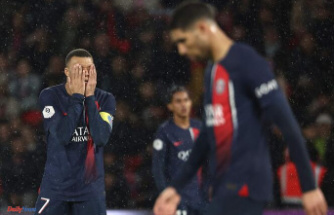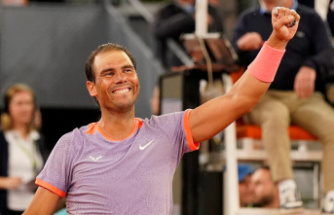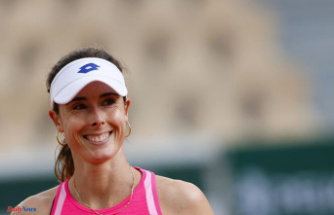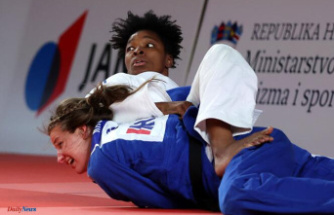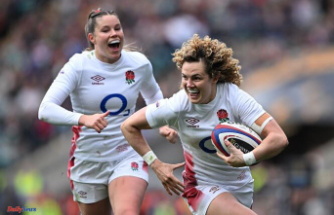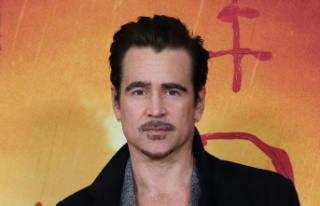When Laura Freigang, Sophia Kleinherne and Sara Doorsoun with Eintracht meet their DFB colleagues Klara Bühl, Giulia Gwinn, Lina Magull, Lea Schüller, Linda Dallmann and Sydney Lohmann from FC Bayern seven weeks after the European Championship final, German football will take a close look.
How many spectators are there in the big Frankfurt stadium? And what is left, what happened to the enthusiasm for the German team after this rousing tournament in England?
The so-called highlight game on the Main on September 16 is intended to initiate a trend reversal in a league in which an average of just around 1000 spectators recently came to the games. The last Champions League season showed that something like this can work, at least in part: 91,648 fans came to the FC Barcelona game against VfL Wolfsburg at the Camp Nou - more than ever for a women's game in the world.
Viewer record at 12,464
Siegfried Dietrich, long-time initiator of the Frankfurt Bundesliga players and chairman of the DFB Women's Bundesliga Committee, is convinced that there is now "a jolt forward." But that's not new: After each of his many titles - eight at the European Championships, 2003 and 2007 at the World Cup and Olympic gold in 2016 - that was what the DFB and the league had hoped for. Even after the 2011 home World Cup, the effect of which fizzled out. The attendance record has been 12,464 since 2014, when the current German captain Alexandra Popp crowned VfL Wolfsburg the German champions against Frankfurt with her headed goal.
The international upswing in women's football is unmistakable, and public attention for the DFB team has been enormous in recent days. "The decisive factor in this European Championship is the appearance of all players, this mentality. That helps us enormously," said Ralf Kellermann, sporting director and former successful coach in Wolfsburg, the German Press Agency. "The identification with the national team is greater than it has been for a long time. Now we are all challenged, the association and the clubs, to take this momentum with us."
Better Marketing
The first away game of the champions and cup winners on September 24 at TSG 1899 Hoffenheim will not only be shown live by MagentaSport, but also by ARD. Some things could change in the TV broadcasts in the medium term: The DFB has now tendered the audiovisual media rights of the Bundesliga for the seasons 2023/2024 to 2026/2027.
Above all, it is crucial for better marketing that EM stars such as Alexandra Popp, Lena Oberdorf, Giulia Gwinn, Merle Frohms or Lina Magull are no longer just known to insiders.
"I've always said we need visibility, but we also need faces," said DFB President Bernd Neuendorf in England. "These are players who were probably not so well known to the general public a few weeks ago, who are suddenly on everyone's lips." As with the men, you need national players "with a high level of awareness" as role models for the youngsters.
"Social Media European Championship experienced"
Above all, Instagram, TikTok and Co. help. "I think we experienced a social media European championship with enormous click rates. That means that you have a certain level of awareness," said Joti Chatzialexiou, head of national teams at the DFB. "We all have to put our heads together and see how we can push that over the next few years."
According to the DFB, the sporting success of German soccer players is also reflected in the growth in TV reach and market share. The women's team's social media channels have seen "significant growth" since the start of the European Championship.
The next major event for the DFB women is already in 2023 with the World Cup in Australia and New Zealand (July 20 to August 20), if the women in football qualify for it as expected. "That will also benefit us and is like a chance on a silver platter. We just have to keep at it. The chance is bigger than ever," said Kellermann.
"I hope that we can actually create and continue the euphoria with the Bundesliga opener," said Chatzialexiou. He also referred to ongoing processes and projects at the association, which is struggling with young girls. Ambitious goals are associated with the “Strategy Women in Football FF27”. The DFB is applying together with the Netherlands and Belgium to host the 2027 World Cup. By then, the media coverage of women's football should have doubled across all platforms.


